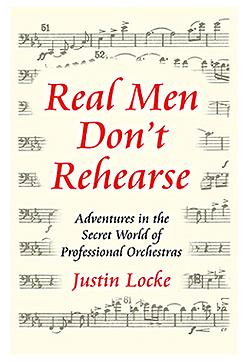So I was in the produce aisle in Whole Foods Market today. Next to me was a pleasant enough young woman who had three little kids in tow. I would guess they were ages 6, 4, and, parked in the little shopping cart seat, was a kid about two years old.

So anyway, I’m just standing there minding my own business, pondering the relative merits of the arugula, when something happened between this woman and the two-year-old. I missed the details, but whatever it was, it incited this tiny little person to fill her little lungs with as much air as she could hold, and then this kid let out a screaming wailing banshee noise that nearly split my eardrums. I finally had to seek refuge in the frozen food aisle.
Now I have to say, being a former professional musician, I am not unfamiliar with loud sounds. I worked with some pretty famous opera singers, including the likes of Beverly Sills and Jon Vickers. Now granted, when I worked with them they were a few years past their pull date, but even so, they still had something like 200-300 pounds of concentrated vocal training to work with . . . and even with all that bulk and training, none of them could ever come close to the decibels this kid (or any other run-of-the-mill screaming 2 year old) could crank out.
I should think OSHA would be a little more aware of this, and require mothers of newborns to both wear, and make available to others, adequate ear protection. People who study acoustics, and things like what makes one violin louder than another, should sit down and look at these little kids and figure out their secret. It’s pretty impressive.
Anyway, this was not the first time I have had my eardrums assaulted by one of these pint size air raid sirens, and this got me to thinking.
When kids are yelling, our primary goal is to get them to stop. From childhood onward we all encounter a strange mix of training in both emotional expression and emotional suppression, but it’s mostly the latter. If you go in any school building, they’re always trying to get the kids to calm down and be quiet. Most people constantly encounter training in emotional suppression.
But if you go into the music business, you get the exact opposite training. This is especially so if you play a string instrument, as your teachers and the conductors are constantly exhorting you to play as loud as you possibly can. I’m starting to think that that experience accounts for all lot of why I am the way I am today. I was constantly trained in amplifying my emotional expression, where most people are versed in emotional suppression.
There is all kinds of emotional suppression energy in our society. We are constantly looking for ways to suppress sexual emotions and teenagers with varying levels of success. I think part of the reason why some kids like really loud music is because it’s a way to at least vicariously feel a certain degree of freedom of emotional expression that is otherwise denied them, by their own self consciousness and by social mores in general.
I see this over and over again: when people reach adulthood and they want to do something that requires emotional expression, whether that’s writing a book, learning how to dance, marketing to large numbers of people, or getting up to speak in front of a crowd, they have an instant massive problem. Any activity like this immediately goes against something like what, 20 years of being told to be quiet? And not express their intense personal feeling? Which, in each person, is just as loud on the inside as that two year old was on the outside in the produce aisle today.
I am starting to understand this cultural difference . . . I have always been amazed at the emotional suppression I typically encounter in most non-artistic type people and workplaces. I used to think it was just a difference in personality, but more and more I think it is a function and result of relentless training. It has become embedded in the culture, and when it gets so one-sided, I question the value of it.
© Justin Locke
